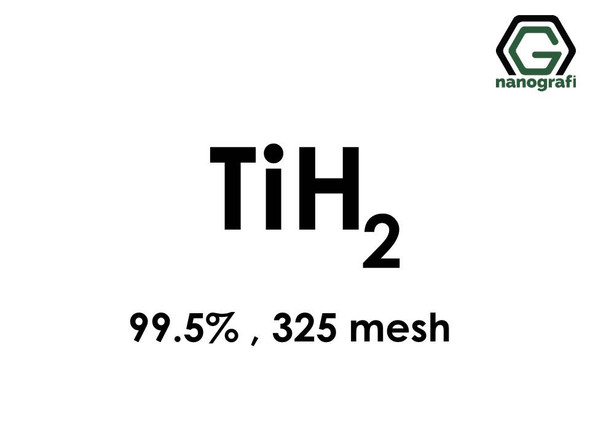Description
25 ml: 103€
100 ml: 218€
500 ml: 491€
1000 ml: 748€
Contact us for tailored quotes on larger quantities & experience exceptional solutions from our experts.
Titanium Aluminum Carbide (Ti3AlC2) MAX Phase Micron Powder, APS: 325 Mesh, Purity: 99+%
Properties of Titanium Aluminum Carbide
| Compound Formula | Ti3AlC2 |
| Molecular Weight | 194.605 |
| Appearance | Gray powder or solid in various forms (disc, sputtering target, custom shapes) |
| Melting Point | 2100 °C |
| Boiling Point | N/A |
| Density | 2.36 g/cm3 (20 °C) |
Certificate of Analysis (%)
| Tİ | C | Al | Other impurity allowance (%) |
| 73.60 | 12.2 | 13.70 | 0.5 |
| Mechanical Properties | |
| Compressive Strength (MPa) | 764 |
| Bending Strength (MPa) | 375±15 |
| Breaking Tenacity (MPa) | 7.2 |
| Vickers Hardness (GPa) | 3.5 |
| Young Modulus (GPa) | 297 |
| Electrical Properties | |
| Single Conductivity | 2.9(25℃) |
| Temperature Coefficient of Resistance(×10﹣3K﹣1) | 3.1 |
| Thermal Properties | |
|
Coefficient of Thermal Expansion Thermal Expansivity |
9.0 |
| Thermal Shock Resistance | Fine |
| High Temperature Stability | Fine |
What is Titanium Aluminum Carbide Max Phase?
Titanium-aluminum carbide max phase (Ti3AlC2) is a new type of three-layer structure ceramic material, which has been widely concerned by material scientists and physicists due to its unique properties.
Titanium aluminum carbide max phase micron powder (Ti3AlC2 belongs to the hexagonal crystal system, and has the characteristics of metal and ceramics: it has the same conductivity and heat conduction as metal, but also has the same high elastic modulus and excellent high-temperature mechanical properties as ceramic, with good conductivity and heat conduction capability, high elastic modulus and low Vickers hardness, and good damage resistance capability. It can be machined at room temperature and produce plastic deformation at high temperature. It also has good high temperature stability and oxidation resistance. It also has good thermal shock resistance, damage resistance and excellent chemical corrosion resistance.
Applications
MAX phase ceramics, particularly Ti3AlC2, represent a category of processable conductive ceramics encompassing over sixty ternary carbides or nitrides. The nomenclature denotes "M" as early transition metal, "A" as main group elements (typically from the third and fourth groups), and "X" as carbon or nitrogen. Among these, Ti3AlC2 has garnered significant attention.
Ti3AlC2's versatile properties position it for various applications.
- High-Temperature Structural Material: Ti3AlC2 finds use in high-temperature scenarios due to its robust characteristics.
- Electrode Brush Material: The material's conductivity renders it suitable for electrode brushes, enhancing durability and performance.
- Chemical Anticorrosive Material: Ti3AlC2's corrosion resistance makes it valuable for chemical containment and protection.
- High-Temperature Heating Element: Its capacity to withstand elevated temperatures makes it applicable as heating elements in demanding thermal environments.
- High-Temperature Coatings: Ti3AlC2 is harnessed for creating coatings capable of enduring elevated temperatures.
- MXene Precursors: Ti3AlC2 serves as a precursor in manufacturing MXenes, two-dimensional materials with exceptional properties.
- Conductive Self-Lubricating Ceramics: Self-lubricating behavior and conductivity make it suitable for applications necessitating reduced friction and wear.
- Energy Storage: Ti3AlC2 plays a role in lithium-ion batteries and supercapacitors, enhancing energy storage systems.
- Electrochemical Catalysis: Its conductivity is advantageous in electrochemical catalysis processes, facilitating efficient chemical transformations.
The multifaceted attributes of Ti3SAlC2 and similar MAX phase ceramics are opening doors to advancements in materials science and diverse industries, offering solutions for challenging applications.










